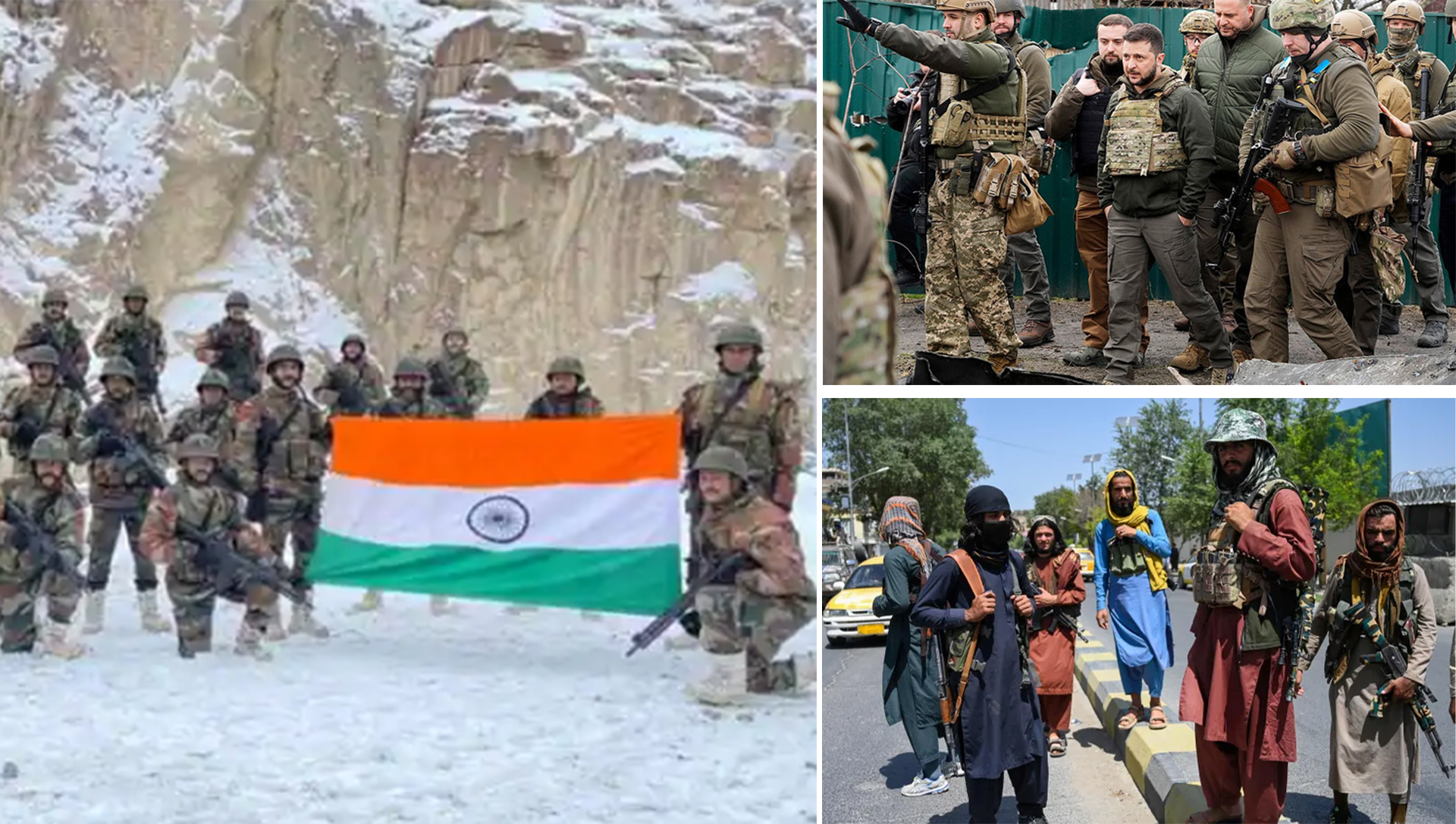Three different anniversaries have come around this 15th of April. It marks 50 days of the war in Ukraine. It’s exactly eight months since the Taliban took Kabul. And today is exactly 22 months since the Galwan battle in Ladakh. The way all three have played out has made India shine geopolitically.
Now that Ukraine has so comprehensively replaced Afghanistan as the centre-piece of global geopolitics, India seems best placed with regard to both sides. When the West exited Afghanistan in disarray, Pakistan had seemed best placed geopolitically. It seemed then to have the (at least covert) backing of Russia, as well as of Iran, and of course China.
The most obvious result of the Ukraine war for India is that it can obtain advantageous import terms from both Russia and the US, if it continues the skillful diplomatic manoeuvring of the past seven weeks.
I believe there is also reason to celebrate a less obvious advantage: the Ukrainian grit, patriotism, and sheer daring-do, has torn to shreds paper estimates of how easily a war machine with superior, and vastly greater numbers of, weapons might overrun another country’s military.
If China’s top leaders had any illusions that their larger military numbers would make short work of India’s military, they must surely have had a very serious rethink over these past 50 days. And they must have been tremendously sobered by now.
Chinese Foreign Minister Wang Yi’s talk of the need for India to see ‘the big picture’ is best read in light of what’s happening along the Dnieper river, including Hostomel and Zaporizhzhia. Both are among the places Ukrainian forces have retaken from Russian forces.
Numbers fall flat
There is no doubt that China has much more armaments, aircraft, missiles, cyber, space, and other hardware and software than does India. It was surely hubris over all these possessions that made them dispatch huge numbers of their troops, tanks, missiles, and planes to India’s borders all the way from Ladakh to the north-east two years ago.
We shall probably never know for sure, but I would not have been surprised if the Chinese would have launched a feisty offensive across the Line of Actual Control (LAC) if Russia’s Ukraine invasion had gone relatively well.
The West would have been preoccupied with that war, and China would have counted on being able to make progress across the Himalayas without much interference from the rest of the world.
Ukraine’s undaunted defence of its territories, even in areas to the east where Russians presumed it had the support of common people, has been an eye-opener. Even without much air power, and with weaker tanks, artillery, and other weapons, the Ukrainian army has put up an impressive fight.
Galwan gallantry
India’s brave-hearts had already shown the Chinese what awesome courage they were up against on the night of 15 June 2020 in Galwan valley. The unprepared yet undaunted Indians were outnumbered by the Chinese ten to one that night, much more than the Ukrainian forces have been at most places in Ukraine.
In an article a couple of days after, I had compared the Galwan battle to the Battle of Agincourt, which also lasted only a few hours. It is tragic that India as a country has not proudly commemorated the incredible fight put up by its troops that glorious night.
By contrast, the British still commemorate and valorise their victory at the field of Agincourt in France way back in 1415.
The bravery and tactical brilliance displayed by soldiers from the Bihar, 3 Punjab, 3 Medium Artillery, Gorkha, and Signals regiments — who rushed pell-mell onto that lethal battlefield — should be memorialised in poems, songs, and films. For they not only avenged the treacherous killing of the commanding officer, which had sparked the battle, they achieved their military objective.
In the bargain, some of the Punjab soldiers carried off the 2nd-in-command of the Chinese special forces there, and lugged him back to their camp. Personally, it seems regrettable to me that that officer was quickly returned when the Chinese called frantically the next morning, without a stipulation that Indian captives must be returned first.
Lessons from Ukraine
Now, the Ukraine battle has demonstrated that Western support during a war can really bite. Not only have Western countries imposed pretty tough sanctions against Russia, they have supplied arms, weapons, training, ammunition, and other supplies to the Ukrainian forces.
The Ukrainian forces themselves have performed admirably. They sank the pride of the Russian navy in the Black Sea just a couple of days ago. Having held out in the siege of Mariupol for more than six weeks, they will surely give Russian attackers a run for their money if Odessa becomes the next big focus of the war.
Russia has decided to focus mainly on the Donbas, the areas in Ukraine’s east where separatists have been fighting Ukrainian authority. Many of us have been amazed at how tough Russia has found it to take over those areas, which the separatist struggle made many observers presume would make them easy pickings for Russia.
That is another salutary lesson with regard to neighbouring countries’ longstanding efforts to fuel separatist struggles in India. If Russian forces continue to face the sort of tough challenges they have in these first 50 days of the war, it is unlikely that either of India’s enemies would feel encouraged to push their luck.
(David Devadas is a journalist and security, politics and geopolitics analyst.)
(Disclaimer: Views expressed above are the author’s own.)










